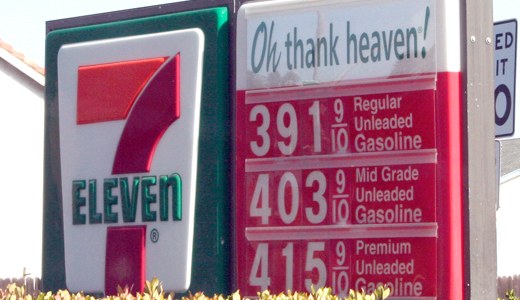
Echoing President Obama’s recent call to wean the U.S. off oil, a coalition of almost three dozen local and national environmental groups are calling for a fuel economy standard of 60 miles per gallon by 2025.
In a letter to the president, the coalition cited rising gas prices, global pollution, oil-based trade relations with “regimes and individuals who are hostile to the United States” and the need for investments in job-creating, clean energy industries in the U.S. as reasons for raising the fuel economy standard.
In his first week in office, President Obama raised fuel economy standards, known as the Corporate Average Fuel Economy, from an average 25 to more than 35 miles per gallon by 2016. A 1975 law granted the executive branch the authority to change those standards.
When fully implemented, that decision will save new car owners hundreds each year in gasoline costs and will reduce global warming-causing pollution by five percent each year, the coalition letter predicted.
More can be done, however. If the president chooses to raise the standard to 60 miles per gallon by 2025, Americans would save $370 billion more in gasoline costs, reduce oil consumption by 2.5 million barrels per day and even further reduce pollution, the letter claimed.
The Environmental Protection Agency and the Department of Transportation are expected to propose the new standards this fall. Right now the administration is debating a range of numbers for new standards for 2017 through 2025.
“Given what is at stake, these standards are a key national priority,” said Kevin Knobloch, president of the Union of Concerned Scientists, a signatory to the letter.
“The strongest standards – 60 mpg – deliver the greatest consumer savings at the gas pump, the greatest pollution reduction and the greatest oil savings of the range of standards under consideration,” Knobloch told reporters on a teleconference call May 9.
Domestic auto company executives and politicians from auto industry reliant states are pushing for lowest numbers, Knobloch pointed out. But strong standards are good for the whole country and are also good for the industry. The auto companies already possess the technology to make all of the new cars and trucks they make meet the highest standards.
“Americans want to buy cleaner, more fuel-efficient vehicles,” he said. This demand could drive new growth for the automakers.
Three years ago, high gas prices nearly sank the domestic auto industry, Knobloch said. The previous administration failed to raise standards or provide incentives to the automakers to improve clean energy technologies. When gas prices spiked, new car consumers turned to foreign-owned carmakers for cars with higher fuel economy. Subsequently, two of the Big Three went bankrupt and sought federal government bailouts.
By raising standards to 60 mpg by 2025, President Obama could add further incentive for the domestic auto industry to develop new technologies and provide the cars and trucks that American consumers are demanding, Knobloch said.
“Our country faces a basic math problem,” added Robert Sisson, president of Republicans for Environmental Protection, another signatory to the letter. “The U.S. owns less than two percent of world oil reserves and we consume about 23 percent of world oil production.”
Sisson says this imbalance costs the U.S. about $1 billion per day to import oil. Obviously, the economic benefits of spending that $1 billion on clean energy made here would be enormous. Raising CAFE standards to 60 mpg is one piece of the puzzle to reverse the imbalance.
Other signatories of the letter include the Natural Resources Defense Council, Sierra Club, League of Conservation Voters and Greenpeace. Learn more at Go60mpg.org.
Photo by Ewen Roberts // CC BY 2.0












Comments